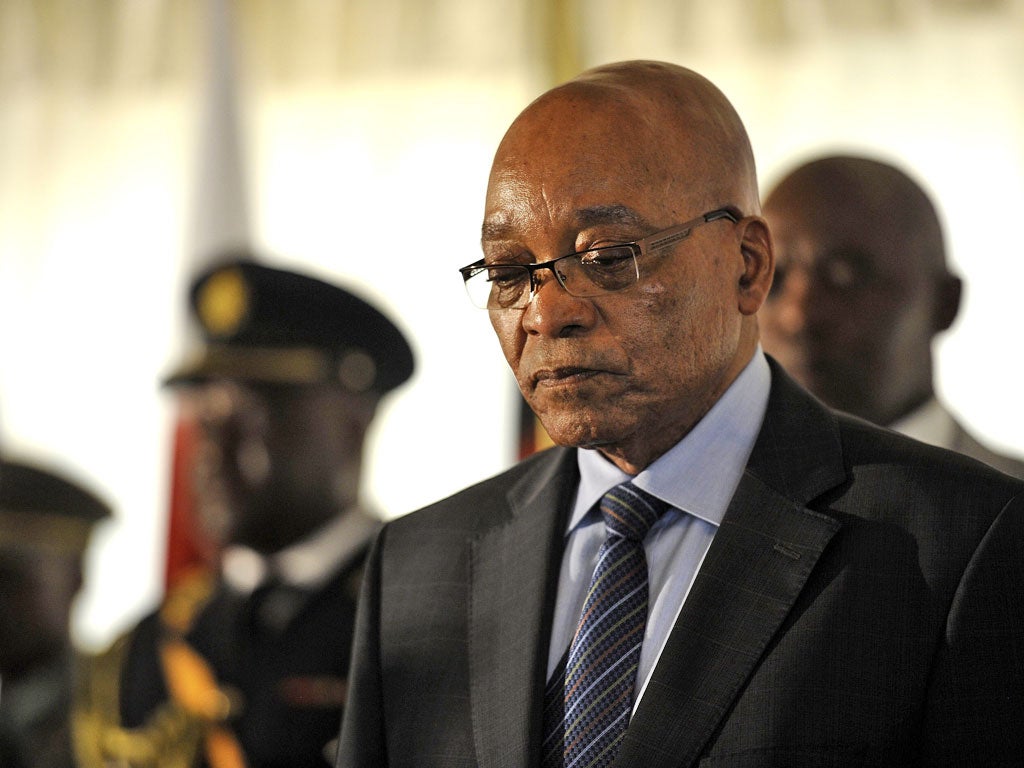Alex Duval Smith: Behind the violence is a power struggle for greater influence on the part of miners

Your support helps us to tell the story
From reproductive rights to climate change to Big Tech, The Independent is on the ground when the story is developing. Whether it's investigating the financials of Elon Musk's pro-Trump PAC or producing our latest documentary, 'The A Word', which shines a light on the American women fighting for reproductive rights, we know how important it is to parse out the facts from the messaging.
At such a critical moment in US history, we need reporters on the ground. Your donation allows us to keep sending journalists to speak to both sides of the story.
The Independent is trusted by Americans across the entire political spectrum. And unlike many other quality news outlets, we choose not to lock Americans out of our reporting and analysis with paywalls. We believe quality journalism should be available to everyone, paid for by those who can afford it.
Your support makes all the difference.In the wake of the shocking killings of the Marikana protesters, a lingering question remains: how could post-apartheid-era South African officers have used such force against protesters?
A big part of the answer lies hidden in the forces currently driving South African politics: President Jacob Zuma's desire to be re-elected as president of the African National Congress and to serve a second term as president of the country. To win his bid for re-election at an ANC conference in December, Zuma, pictured, needs the National Union of Mineworkers' support. The NUM, which has more than 300,000 members, is the most powerful union in the country.
Running a close second in terms of size and political influence is the much more left-leaning metal workers' union, the NUMSA. Its policy includes mine nationalisation – an absolute no-no among President Zuma's camp.
The NUM has been losing ground in South African mines. Miners accuse their leaders of abandoning grass-roots concerns and focusing instead on politics. They have been turning to new unions, such as the Association of Mining and Construction Union (AMCU). According to some reports, 25 per cent of miners at Marikana have gone over to the AMCU.
The new upstart union's role in undermining the NUM's dominance of South African mines benefits the metal workers ' quest for greater clout at the ANC conference. It also suits employers to break the NUM's dominance.
Acrimony between the two unions spilt over into violence prior to Thursday's shootings, leaving 10 dead. The result was the intervention of heavily armed police in an attempt to stop the clashes.
In the background, since President Zuma has been in power the profile of the police has been raised and military ranks introduced for officers. Coincidentally, Thursday saw the passage through the National Council of Provinces of the so-called "deadly force bill", which clarifies the circumstances in which police are entitled to use force to effect arrests or enforce order.
Join our commenting forum
Join thought-provoking conversations, follow other Independent readers and see their replies
Comments